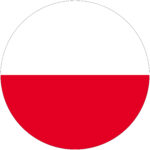As tax authorities strive to reduce their national VAT gaps, the mandating of e-invoicingElectronic invoicing - widely referred to as e-invoicing - is the exchange of a digital document between a supplier and a buyer. E-invoices are issued, transmitted and received in a structured data format that enabled automatic and electronic processing. They contain data in a machine-readable format so that an AP system can read an invoice without manual data entry, leading to faster and more efficient invoicing. continues across the world at a rapid pace.
Chile became the first country to introduce e-invoicing in 2001 and Italy brought the system to Europe in 2014. Today, more than 100 nations have e-invoicing legislation in place, although in many this only applies to B2G transactions.
We’re now seeing more countries work towards mandating e-invoicing for B2B transactions, meaning every order between VAT-registered businesses will require an e-invoice to be produced, shared and submitted digitally.
How e-invoicing helps to close the VAT gapThe difference between the amount of VAT revenue due to a tax authority and the amount actually collected
Utilising technology is the only way for businesses to ensure precise VAT calculations; free from the risk of human error.
The mandating of e-invoicing will force more organisations around the world to invest in and rely on modern solutions to extract data from source systems and use it to populate and submit e-invoices and other reports.
Tax authorities will therefore be in a position to more easily and accurately access VAT data and utilise their own solutions to scrutinise it. This will allow authorities to identify discrepancies, errors and fraud at an early stage.
With errors being acted upon and fraud more likely to be identified and punished, tax authorities will have the visibility and power required to maximise tax revenues and close the VAT gap.
If your business is resisting the move to e-invoicing, it’s worth considering the large number of countries due to mandate it in the coming years. Here are just 10 examples:

Belgium – 2026
Belgium is readying itself for mandatory B2B e-invoicing from 1st January 2026. The bill setting out the legislation has been passed, although Belgium is still waiting for permission from the European Commission. It will introduce a new B2B e-invoicing regime based on the PEPPOL 4-corner model.

Croatia – 2026
The Ministry of Finance is working towards a January 2026 launch of mandatory B2B e-invoicing in Croatia. It will be supported by the government’s e-Racun platform.

France – 2026
Following a delay announced in October 2023, the introduction of mandatory B2B e-invoicing in France is now set for September 2026. A legal and technical framework for the system has been drawn up and authorities are currently engaging in working groups with private businesses and technology providers to progress the implementation.

Germany – 2027
A draft law that includes the introduction of mandatory e-invoicing has been approved by the Bundesrat. Companies with turnover of more than €800,000 will be required to use e-invoicing from January 2027, with businesses with revenue below this figure joining in January 2028. However, officials recommend being in a position to receive e-invoices from 2025, when a system will be launched on a voluntary basis.

Poland – 2025
Plans remain in place for KSeF B2B e-invoicing to become mandatory in 2025. The Polish Ministry of Finance recently announced nine rounds of public consultations as it looks to refine its implementation plan. A new launch date for 2025 is expected to be confirmed by May 2024.

Romania – 2024
Romania introduced a near real-time system for B2B e-invoices earlier this year, although it will run without penalties until July 2024. From July, the full e-invoicing regime with submissions via the eFactura platform will go live and paper invoices will no longer be allowed.

Malaysia – 2024
Mandatory B2B e-invoicing is coming to Malaysia this year, with a pilot due to start in May. It will become a legal requirement for companies with annual turnover of MYR 100 million and above in August, before being rolled out to all organisations next year.

Israel – 2025
Implementation of B2B e-invoicing was due to happen on 1st January 2024, but has recently been delayed until 5th May 2024. It will initially be required for all invoices with a value over 25,000 NIS, before a phased introduction for lower-value invoices between 2025 and 2028. Under the terms of the scheme, e-invoices will have to be communicated to and approved by the Israeli Tax Agency in real-time.

Mauritius – 2024
A new mandatory e-invoicing system for businesses operating in Mauritius has been confirmed. It will run on a Continuous Transaction Controls model and some early stages of the introduction have already been completed. From 15th May 2024, larger taxpayers issuing invoices will have to generate invoices via the tax authority’s Electronic Billing System. Other taxpayers will be added to the mandate from late-2024.

Australia – 2024
Negotiations remain ongoing about the potential mandating of B2B e-invoicing in Australia. The PINT A-NZ specification of OpenPEPPOL has been approved for B2G e-invoicing and a timetable of its implementation kicks off in November 2024. The Australian Department of Treasury is committed to ensuring PEPPOL-based e-invoicing is also applied to B2B transactions.
How to prepare your business for mandatory e-invoicing regulations
If e-invoicing is due to be mandated in one or more of the countries in which your business trades, you’ll need to implement a specialist e-invoicing platform to enable compliance.
We also recommend going one step further by putting processes in place to cleanse, refine and complete your master data.
As we often say, if you put garbage (and by that we mean poor quality data) into your tax solution or e-invoicing system, you’ll get garbage out in the shape of inaccurate, incomplete, non-compliant results.
So whatever you do prior to introducing an e-invoicing system, make sure your tax master data is in top shape first.









